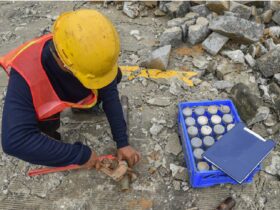A new link-up between a global poker giant and a licensed Middle East gaming platform could prove to be a game-changer for gambling in the Middle East.
GGPoker recently announced they have welcomed PokerArabia into their global network, which will allow poker players in the region to compete against opponents from across the world.
There has also been talk about potentially hosting World Series of Poker (WSOP) events in Lebanon. This would be a mind-blowing development for the Middle East.
Several other Middle East nations have also made moves to embrace gambling, but many others still adopt a hardline stance towards the practice.
These include Kuwait, which is in danger of being left behind by its neighbours. Read on as we look at the new poker partnership, before assessing the impact this could have on Kuwait.
Middle East Expansion Highlights a Shifting Landscape
The partnership between GGPoker and PokerArabia is a groundbreaking move that promises to usher in a new era of poker excitement in the Middle East.
Backed by the renowned Casino Du Liban, PokerArabia has been a pioneer in bridging the gap between traditional and online gaming in the region.
Their decision to join forces with GGPoker means Arab players now have access to a vast array of high-stakes tournaments and prestigious WSOP online events.
The collaboration promises to bring more games, larger prize pools and an overall superior poker experience to players in the region.
The move could mark a turning point for gambling in the region, providing a model for other Middle Eastern countries to follow.
The Case for Gambling in Kuwait
Several nations worldwide are looking for new ways to boost their economies and attract tourists, and gambling is an avenue that many of them have explored.
Kuwait’s location and well-developed infrastructure make it a more attractive destination for international tourists but they are still dragging their feet on embracing the gambling sector.
Arab players can currently access online poker in Kuwait, but the sites they visit are licensed and regulated in other gambling jurisdictions.
Kuwait’s failure to establish its own regulatory framework means the country misses the opportunity to garner valuable tax resources.
Like most other countries in the Middle East, Kuwait is trying to make their economy less reliant on energy and have spared no expense in realising those ambitions.
Part of their strategy involves the development of large-scale tourism projects. The government has released around $676 million for the construction of a resort in Failaka Island – an ambitious project designed to attract international tourists.
The resort is designed to be a world-class destination, featuring hotels and several other entertainment facilities such as shops and recreational centres.
Failaka Island is designed to be a strict entertainment zone, but it could also be an avenue for them to expand their offerings to incorporate gambling and give them the ability to host WSOP events.
The current plans for the resort do not include gambling, but with Kuwait’s neighbours expanding their reach into the industry, they may be forced to join the trend.
Heading down this route would open the door for growth in the online gambling sector, thus giving Kuwait additional tax revenue it can use for other social projects.
The Potential for WSOP Events in Kuwait
Given the success of online poker in the Middle East, there is a chance that Kuwait could host a WSOP event in the future, but they’ll need to tweak their rules on gambling before that happens.
The WSOP is the biggest and most famous poker tournament in the world, and hosting such a prestigious event is not beyond Kuwait’s reach.
The series attracts thousands of players and fans every year and would generate millions of dollars in revenue for host cities.
Kuwait could also capitalise on the global audience to attract tourists and garner interest from the media industry and major sponsors.
Hosting a successful WSOP tournament would also put Kuwait on the map as a global destination for poker enthusiasts.
While Kuwait is more than capable of hosting such an event, their reluctance to license and regulate gambling remains a major stumbling block.












